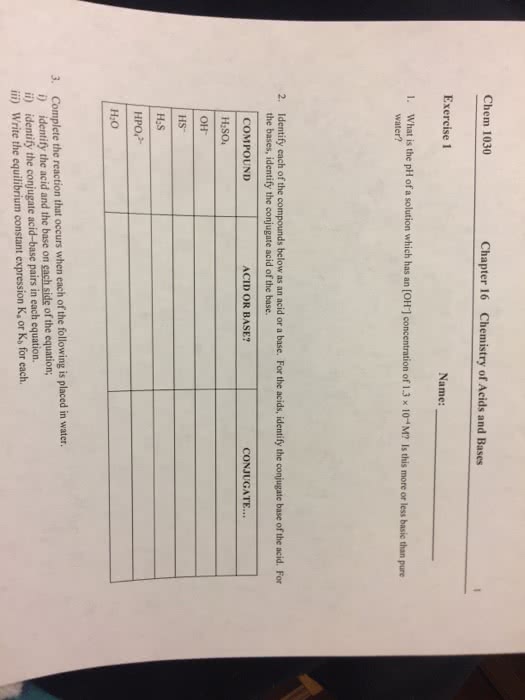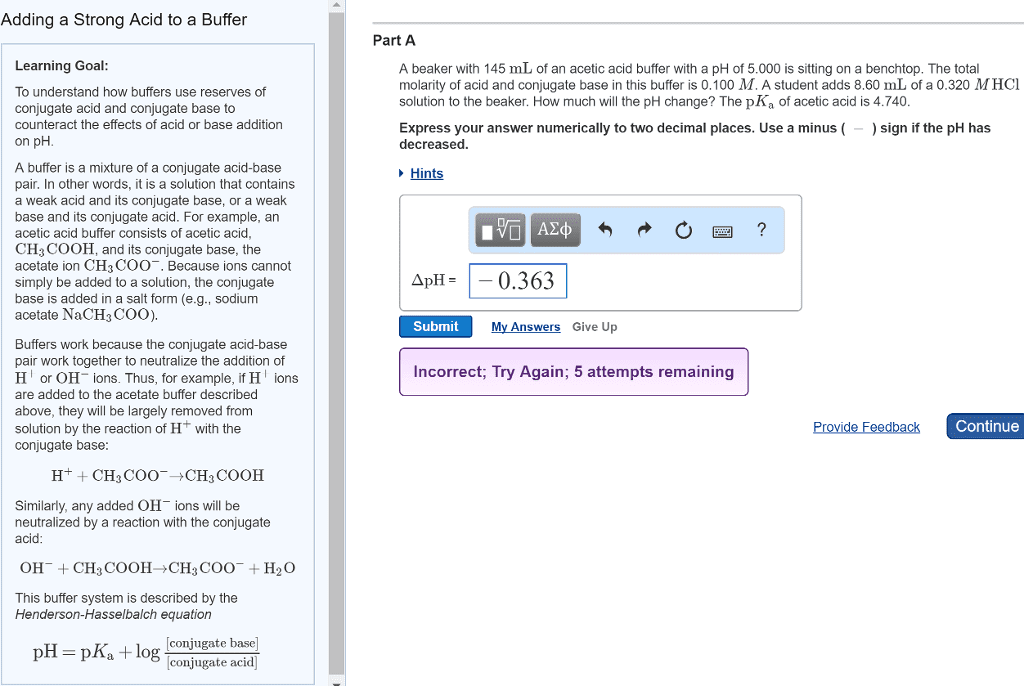CHEM1112 Lecture Notes - Lecture 7: Conjugate Acid, Endothermic Process, Equilibrium Constant

• Identify carboxylic acids
• Acids: mostly have proton attached to O- makes polar, anion is quite stable. HO-C=O.
• Bases: OH are strong, free OH ion.
• Conjugate acid- base pairs: a conjugate base has one less proton of its conjugate acid. (NH4+ is the
conjugate acid of NH3, HSO4- has conjugate base SO4 2- and has conjugate acid H2SO4- this is a
diprotic acid).
• Acid base reactions: acid + base in equilibrium to form acid + base (conjugates).
• Autoionisation of water: equilibrium constant Kw = product of concentration of the products in
the reaction divided by the product of the reactant concentrations
So only very small amount of water ionises, so can assume that it is constant, so no [h2o] reactants
needed.
Concentrations of acids and bases vary, so defined on the pH scale, where the -log[H+] for acids and -
log[OH] where 14-(-log[OH])= pH. Temperature dependence of pH: enthalpy is positive for the reaction
of water to form H and OH, at a higher temperature, endothermic reaction is more favorable, drive to
the right, so have more H3O+ and OH-, so the solution is neutral but the concentration should be
higher, so over 25*C, the solution pH will be less than 7.
find more resources at oneclass.com
find more resources at oneclass.com





